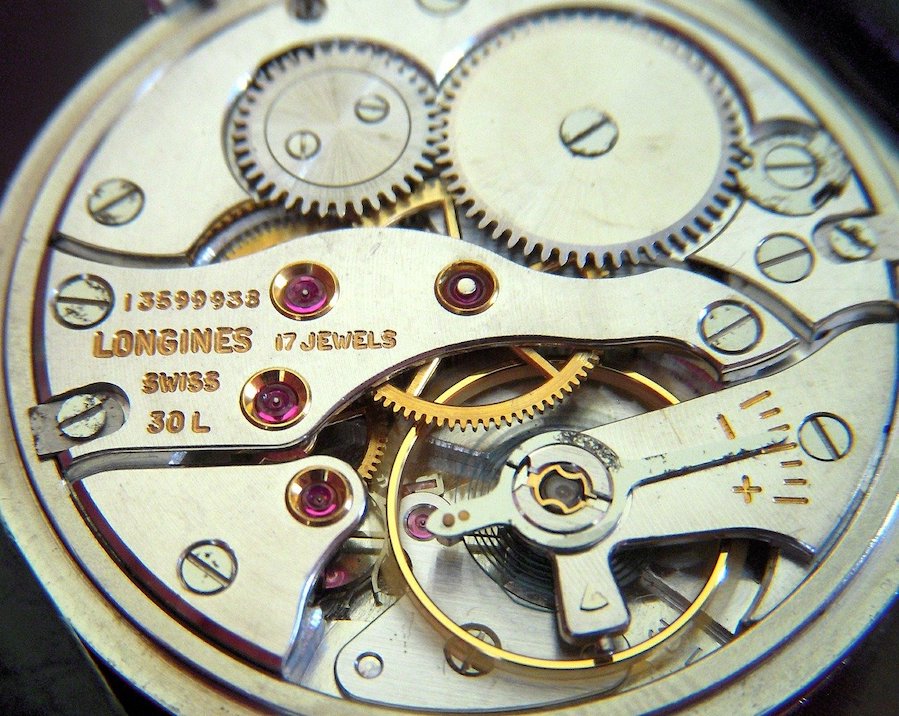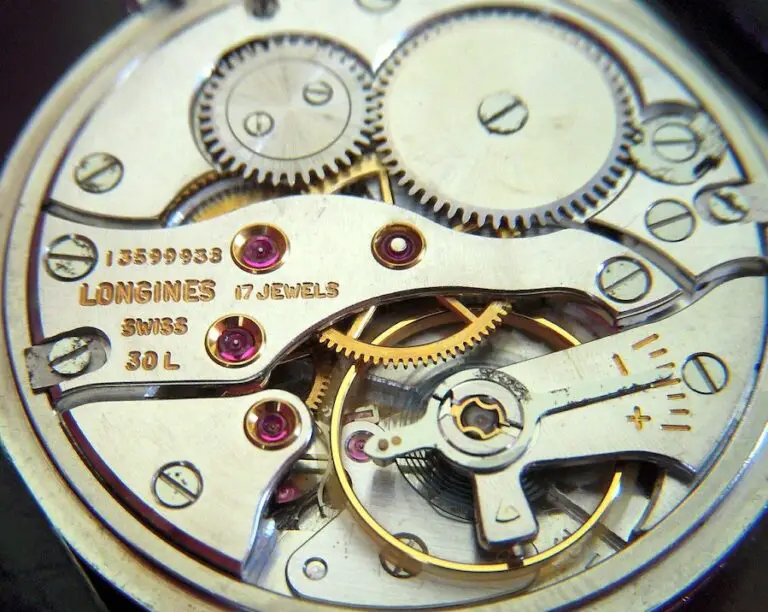When automatic watches tick and run, they look unique and beautiful. But do you just let the watch keep running without stopping? Should you rest your automatic watches?
In general, you do not need to rest your automatic watches. Modern automatic watches are robust and can run non-stop with proper maintenance. However, resting automatic watches allow the movement to destress and the lubricant to settle back to its original position.

Why Do Automatic Watches Stop?
Automatic watches work by having a rotor spin and tighten a mainspring. You spin the rotor by the natural movement of your hands while wearing the watch.
The mainspring will slowly release the energy out with the help of the balance wheel and the pallet fork. It is this energy that then turns the watch’s hands. However, the rotor no longer spins if you stop wearing your watch and let it lay still. You essentially stop winding the spring.
Without additional winding, the mainspring usually holds enough power to keep the watch running for several days. The term commonly used here is the ”Power Reserve” – how long can the watch keep running when the mainspring is not given additional winding.
Standard automatic watches would have around 30-50 hours of power reserve, with some luxury watches able to milk out over 80.
When the energy in the mainspring is fully released, there is no more energy to power the gears and move the watch’s hands. This is when your watch comes to a complete stop, like a car sitting still after using up all the gas in the tank.
Why You Want To Rest Your Automatic Watches
If you rest your automatic watches, you allow your watch movement time to destress. Your watch strap could also take some time to release tension from being worn and regain its original shape.
Destress Watch Movement
Modern automatic watches are designed to be robust, precise, and run non-stop.
The technology has been perfected over the decades. Some experts have seen automatic watch movement as a mature technology.
However, it is still a complex collection of gears, jewels, pins, and hands working in harmony with each other. Which is why automatic watches have oil and grease to lubricate and protect these gears.
However, when the watch is made to run non-stop, the grease and oil might be spread too thinly, to the point of not being able to provide ample protection to the gears.
Without ample protection, you might see gears wear out prematurely as a result of friction heat.
Aside from that, constantly running and wearing your watch also introduces stress from the outside temperature. For example, wearing your automatic watch out in the cold might cause the oil and lubricants to thicken up, reducing protection to your watch gears.
If you rest your automatic watches, you allow these issues to resolve. The oils and lubricants have time to flow back to their original position and protect the gears again.
Destress Watch Strap
If you rest your automatic watches, you also allow your watch strap to rest. This is particularly important on stretchable watch straps, such as leather.
Leather is stretchable but is less elastic. If you constantly stretch your leather over time, it will lose its original shape.
If you constantly wear your watch, and wear them tightly, your leather strap may be stretched to the point of no return. It might be permanently stretched. You might have to add a new hole or get a replacement strap at that time.
If you rest your automatic watches, you allow your straps to rest, releasing all the tension inside and regaining its original shape.
ALSO READ: How Tight Should You Wear Your Watch?

Why You Don’t Want To Rest Your Automatic Watches
You might not want to allow your watch to rest, as the watch would need to reset its time. Resting your watch for too long may cause the lubricants to settle and potentially dry up and not offer proper protection.
You Will Need To Reset The Time
Once the power reserve of an automatic watch runs out, it stops running. Meaning it will no longer keep time.
If you are to wear the watch again, you will have to manually reset the time back so that the watch will keep the original time again. This might not be something that all watch owners enjoy, as it can be a bit of a time-waster.
You often put on a watch in the morning if you think about it. You are probably rushing to leave the house to go to the office or an appointment. Spending that extra minute or two resetting your watch can be a fuss.
If you do not rest your automatic watches, you do not have to deal with this.
The Lubricants May Settle and Dry Up
When rested for an extended period of time, the lubricants in the watch might deteriorate, causing it to be unable to protect the movement. The lubricants may dry out when left idle for too long.
This means if you rerun the watch after a long rest period, you might be damaging the movement.
You Might Mess Up The Complications
Some automatic watches come with complications, such as moon phase or day and date. When you rest your automatic watches, these complications also will stop. When you rerun your watch, you will have to adjust it back to ensure proper operation.
Readjusting simpler complications such as day and date is straightforward. However, it might not be as easy when it comes to more complex ones, such as a perpetual calendar. You might even need to consider a trip to your watchmaker to help you.
Some watch owners do not want to deal with the fuss, so they never allow their watch to stop.
Does Letting Your Watch Rest Damage It?
If you rest your automatic watches, you will not damage it. In fact, it helps the movement to destress, and the watch straps release tension and regain their original shape.
There is probably one way you could potentially damage your watch from resting it. You let it rest for so long that the lubricants have dried up, and then you run the watch. You could be forcing the watch to run without adequate lubrication.
However, you are talking about letting the watch rest for multiple months or more. You will see a scenario like this if you have so many watches, you cannot rotate them enough, or you just purchased a watch sitting on store shelves unwound. So in most cases, you are safe.
When in doubt, always take the watch to a watchmaker to have it inspected. Suppose the lubricants have indeed shown signs of drying. In that case, your watchmaker can service and put in new oil to ensure good running order again.
How To Properly Rest Your Automatic Watches
If you are to rest your automatic watches, it’s important to, keep the watch away from magnetic forces and keep them at room temperature.
Automatic watch movement can have accuracy issues when exposed to magnets. This is because magnets can generate additional forces that may affect the amplitude of the watch. As a result, the watch may fail to keep time well.
Therefore, keep them away from anything magnetic, natural, or man-made when resting your watch. This means not letting your watch rest on things like a TV, speakers, or laptops.
Another thing to consider is to keep them at room temperature. This ensures that the lubricants are not exposed to cold temperatures and become dry.
